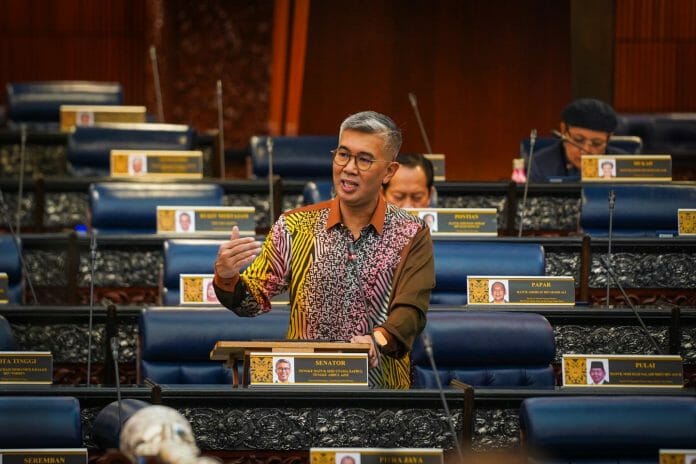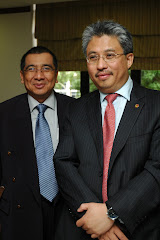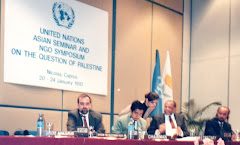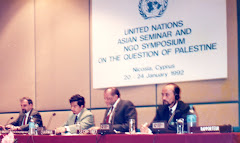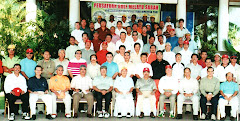Malaysia Madani Budget 2023 Will Strengthen Malaysia’s Economy By Spurring Sustainable Trade and Investments, Says MITI
The Ministry of Trade and Industry (MITI) welcomes the allocation of RM1.585 billion for the ministry and its agencies as announced through the 2023 Budget by the Government today.
This covers a administrative allocation of RM625 million and development allocation worth RM960 million. This proves that the MADANI Government is committed to planning the country’s development in an inclusive and holistic manner which would further strengthen Malaysia’s position as a destination of choice for investment and trade as well as the gateway to the Asian region.
In statement today (Feb 24), MITI said although the country and the world are facing various challenges including the impact of the COVID pandemic, geopolitical uncertainty, global supply chain disruption, a gripping inflation rate, despite these in 2022, Malaysia recorded a performance that remains encouraging through approved investment value and exports whiich continue to strengthen the economy which now carries a value of RM1.42 trillion, exceeding the target of RM1.25 trillion by the year 2025 set under the 12th Malaysia Plan (RMK-12).
MITI Minister Tengku Zafrul Tengku Abdul Aziz said: “The budget focusses on three areas which comes under the ministry, namely industrial development, international trade and local and foreign investment which needs to remain intact in order to maintain the momentum of economic growth, sustain the supply chain and empower the development of Malaysia’s human capital.”
The 2023 Budget allocation to MITI and the 13 agencies under it will increase efforts to achieve these objectives. Among the main objectives to be achieved are:
1. Facilitating investment especially in the technology sector and high impact sectors, in line with the National Investment Policy, especially in terms of allocation of incentives to Local Authorities to facilitate the implementation of approved investments. These includes efforts to empower the investment environment in Malaysia through the Invest Malaysia Council and the National Committee on Investment (NCI) along with the. Malaysia Productivity Corporation (MPC) which will continue expanding under the scope of PEMUDAH at the state level.
2. Prioritisation of sectors with great potential such as Electrical & Electronics (E&E) and aerospace, in terms of tax incentives to transfer operations to Malaysia, and future C-Suite human capital income tax incentives increase investment by multinational companies for strengthen Malaysia’s position as an important destination in the industry’s global supply chain. This also goes hand in hand with the target of the new National Investment Plan (New Investment Plan) based National Investment Aspiration (National Investment Aspiration).
3. MITI through the Halal Development Corporation will work with Ministries and related agencies to ensure the implementation of Waqf MADANI with assets worth RM1 billion to meet the requirements target group.
4. Extension of the Green Investment Tax Allowance (GITA) incentive period and Green Income Tax Exemption (GITE) until December 31, 2025 with improvement of the incentive period to 5 years for green activities eligible is in line with MITI’s focus in enacting the framework national ESG for the manufacturing sector and related services.
5. Discussions will also be held with Bank Negara Malaysia (BNM) to facilitate the channeling of loan funds to start-up companies sustainable technology to help SME companies in the manufacturing sector transition to low carbon processes.
6. In improving the level of digitization and automation of the manufacturing sector especially PMKS, MITI also welcomes the funding funds below BNM that can be channeled to eligible companies.
7. Empowering the industry in terms of skilled workforce development (skilled labour), including the Academy in Factory (AiF) initiative that will provide opportunity for more than 50,000 trainees to carry out training while working at factory. This reflects the Government’s holistic approach to training TVET through public-private collaboration to meet energy needs skilled industry especially in the manufacturing sector.
8. MITI is also renewing and updating the Master Plan New Industrial Master Plan 2030 (New Industrial Master Plan 2023 or NIMP 2023) which will cover key issues, such as structural reforms, increasing the diversity (complexity) of the country’s economy, creating appropriate ecosystem for the target industry, as well as building the capacity of SMEs to apply ESG principles to meet the demands of the global market.
As announced in the 2023 Budget speech, NIMP 2023 which This renewal is expected to be completed in the Third Quarter of 2023.
This channeled budget simultaneously supports the main policies developed by MITI such as New Investment Policy based on National Investment Aspiration, National Automotive Policy 2020, National Policy on Industry 4.0 (Industry4WRD), National Automotive Policy 2020 (NAP 2020) and Framework National Trade Action 2021-2025. All these policies aim, among others, to build an investment ecosystem that offers catalysts (enablers) to foreign and local investors; mainstreaming Environmental, Social and Governance (ESG) principles to open wider market opportunities for the national industry, especially SMEs; and attract strategic industries, based on IR4.0 technology and have an impact high to provide high income job opportunities to the people local.
MITI and its agencies will continue to review and commit to strengthening national economic competitiveness through close cooperation with the private sector based on the concept of a pro-business environment in line with aspirations CIVIL Malaysia.


2.1%20(1)_pag)
